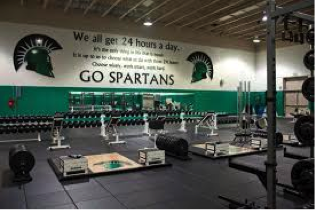
13 Feb Five Things Athletic Trainers Worry About During the Season.
NATA Hall of Fame member Ken Kladnik told me “Athletic Trainers are substitute Fathers and Mothers for student athletes during their college years” and with that in mind listing the aspects that we worry about looks a lot like daily parental concerns. Five things we athletic trainers worry about with regard to our athletes during the season.
1). Nutrition: While recent legislation has empowered colleges and universities to provide much more in terms of food and nutrition not all schools can fully provide the nutritional requirements for student athletes. It remains a large concern: are the choices student athletes make with regard to what is put into their body nutritionally benefitting or hurting their desire to excel athletically and academically? We face daily the issue that many fast food outlets are located within a mile of campus. We have become a group of instant gratification we want what we want and we want it now. Why wait 30-45 minutes to make something in the apartment when going down the street is so easy and quick? We encourage our student athletes to buy a slow cooker (crock pot) and provide recipes for meals that can be made in under 30 minutes often taking 5 ingredients or less and those than can be made in the slow cooker so that it is ready when they get home from practice/classes. We periodically send out recipes to all of our student athletes for them to try and ask for suggestions as to what types of recipes they would like to receive.
2). Rest/Sleep: Are our athletes getting enough rest and sleep? While the demand for a student athlete are great, nothing can substitute for a full night’s sleep to allow the body a chance to recover before taxing it again with the day’s activity. Providing student athletes with evidence that proper sleep and rest enhance performance seemingly does little to change daily habits and patterns.
3). Social Pressures: The opportunity to engage in high risk behavior is always present. Hoping that students make good choices with regard to this is always a concern. We only are with a student up to 4 hours a day, what they do in the other 20 hours a day impacts their health just as significantly or more so as whatever they may do with us. We hope that the decisions made away from us do not harm or negatively impact personal health and wellbeing.
4). Overuse/ Overtraining: The nature of college athletics has changed over time. No longer does there seem to be an “off season”. No longer to you find an assistant football coach that also is the wrestling, baseball, or track coach at a university. Pre-Season, Regular Season, Post-Season (if you are good enough), Non-Traditional season and summer workouts fill the calendar for student athletes. We worry about the breakdown of the body…. Baseball pitchers are on pitch counts, Volleyball hitter players have started to have similar restrictions placed upon them. Athletic trainers and strength and conditioning coaches together try and plan to prevent the breakdown of the body.
5). Athlete Motivation: We all want to believe that every athlete is willing to do everything possible to return to activity as quickly as possible, however, there are times that an individual is content to be injured and not participating. Many factors may contribute to such a situation whether it is playing time, how the season is progressing with regard to wins and losses, relationships with the coaching staff or interpersonal relationships with teammates. Motivating the unmotivated is a challenge that many of us would rather not have to tackle. Those that are unwilling to put in the effort to return to play or simply “go thru the motions” present a great challenge… no matter the programming, the supervision, and attention to detail during the rehab process will make up for a lack of motivation to get better and return to activity.
Hopefully, those involved in the care and well-being of athletes whether coaches or “support staff” all feel and have the desire to see athletes succeed, not only athletically but as importantly academically and socially to become contributing members of society. We here try to communicate with each other what we are seeing and hearing so that we all have the same information, as sometimes pieces are known by some without other pieces of information known by others and once put together situations may make sense, because much like a puzzle all pieces are needed to see the big picture.
I leave you with the following…
“What I do today isn’t important because I may die, it’s important because I may live until tomorrow.”
Earnest Killum Jr. 7/4/1971 – 1/20/1992
Michael P. Sandago MA ATC SCAT 
Associate Athletic Director for Sports Medicine
USC Upstate
Spartanburg, SC 29303







No Comments